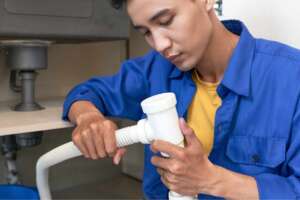Your family’s health is a big deal, but it starts with something simple: water. If your home relies on a private well, regular testing isn’t just a good idea—it’s essential. Unlike city water systems that are routinely monitored, it is up to the homeowner to ensure the safety of water from a private well. That’s a big responsibility, but one you don’t have to handle alone.
Working with a water quality expert like Metro Water Filter of the South takes the guesswork out of testing. They have the tools and knowledge to make sure your water is free from harmful contaminants. By performing home well water testing, you’re taking a proactive step to protect your family’s health and peace of mind.
Understanding Well Water Contamination Risks
Private wells are perfectly capable of providing reliable water, but they’re also vulnerable to contamination. Natural minerals like arsenic and manganese can seep in over time. Harmful bacteria such as E. coli might also find their way into the supply. And don’t forget human-made pollutants like pesticides, industrial chemicals, or PFAS contaminants in drinking water. These threats can compromise the safety of your water.
What does that mean for you? It could mean anything from a mild stomachache to serious, long-term health risks. Contaminated water can cause gastrointestinal illnesses, neurological problems, or even chronic conditions depending on the pollutants present. Find out more about what might be hiding in your water by reading our blog on what’s in your water.
Essential Components of a Well Water Test
A comprehensive well water test checks for a variety of contaminants to ensure your water is safe. Basic tests might measure pH levels, hardness, and total dissolved solids. More advanced testing can detect bacteria, nitrates, and volatile organic compounds (VOCs). Some tests even identify heavy metals or radon, depending on the risk associated with your location.
When should you test? Experts recommend annual testing for common issues like bacteria and nitrates. After events like flooding or nearby construction, additional testing is a good idea. If you notice anything unusual—a strange taste, smell, or cloudiness—schedule a test right away. A guide to water filtration in well water can also help address persistent concerns.
Signs like metallic-tasting water or discoloration aren’t just annoying; they’re warnings. To keep your family safe, consult with a water quality expert who can test your well water accurately and thoroughly.
Professional Testing vs. DIY Testing Methods
When it comes to well-testing, homeowners have two options: do-it-yourself kits or professional services. DIY kits might seem appealing for their low cost and convenience, but they have their limitations. Professional testing, while more expensive, offers unmatched accuracy and reliability.
Here are the key differences:
- Cost: DIY kits are affordable, but professional testing provides better value through detailed, reliable results.
- Accuracy: Professionals use laboratory-grade tools to catch contaminants DIY kits might miss.
- Convenience: DIY testing requires effort and interpretation, while professionals handle everything for you.
- Comprehensiveness: Professional testing can identify a wider range of contaminants and provide actionable insights.
While DIY kits can be handy, situations like contamination scares or unexplained water issues call for professional well water testing. It’s better to be safe than sorry.
Solutions for Common Well Water Problems
 Testing your well water is the first step, but what if the results reveal issues? Thankfully, there are many effective solutions to address common problems. For example:
Testing your well water is the first step, but what if the results reveal issues? Thankfully, there are many effective solutions to address common problems. For example:
Activated carbon filters:
Carbon filters are ideal for removing chlorine, pesticides, and organic compounds that affect taste and smell.
Filox filters:
Filox filters are great for tackling iron, manganese, and hydrogen sulfide.
RO filters:
If you need to remove dissolved solids, nitrates, and heavy metals check out our RO filters.
UV purification systems:
Perfect for eliminating bacteria and viruses without chemicals.
A home water filtration system or commercial water filter can combine these technologies to offer comprehensive protection. And remember, regular testing ensures your system stays effective. If water quality changes, your filtration setup may need an upgrade to maintain its performance.
Maintaining Long-Term Well Water Safety
Safe well water doesn’t happen by accident. It requires consistent effort and attention. Here’s how you can achieve long-term safety:
- Test Regularly: Schedule a comprehensive well water test every year.
- Inspect Your Well: Look for signs of damage or contamination risks.
- Protect Against Contamination: Avoid using pesticides or chemicals near your well.
- Maintain Filtration Systems: Regularly service your home water filtration system to keep it running efficiently.
- Act Quickly: If test results indicate an issue, address it immediately.
Staying proactive helps prevent small issues from becoming big problems. Schedule regular professional inspections to stay ahead of the potential risks.
Ready to Take the Next Step?
Your family deserves clean, safe, filtered drinking water. Don’t take chances with your water—schedule a professional well water test with Metro Water Filter of the South today. Whether it’s routine maintenance or solving a specific problem, our experts are ready to help. Contact us now to protect your home and health.



